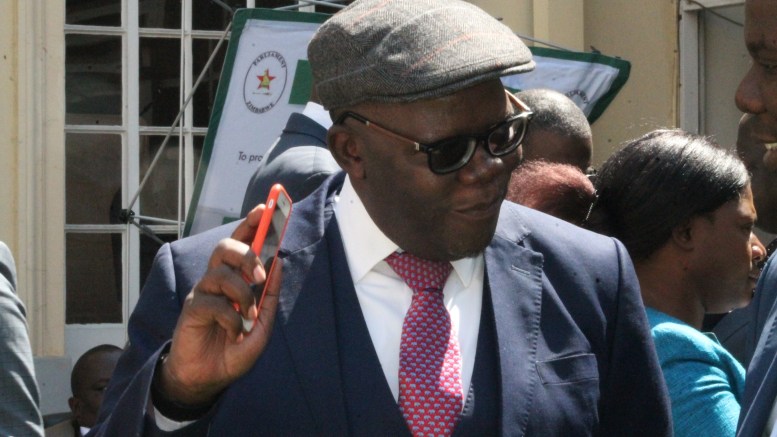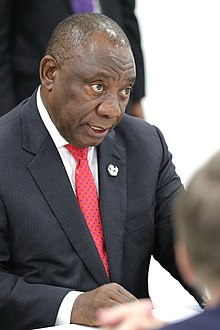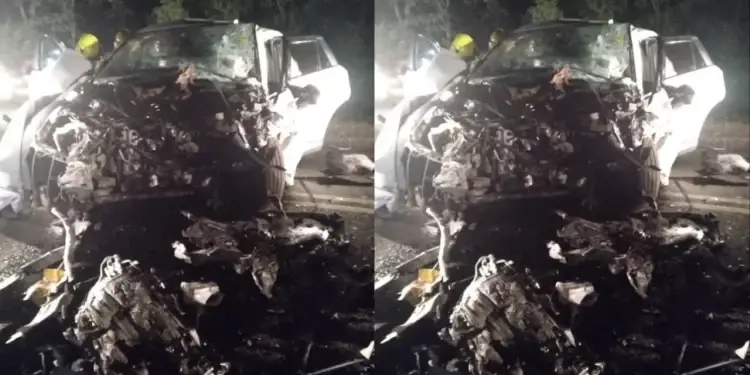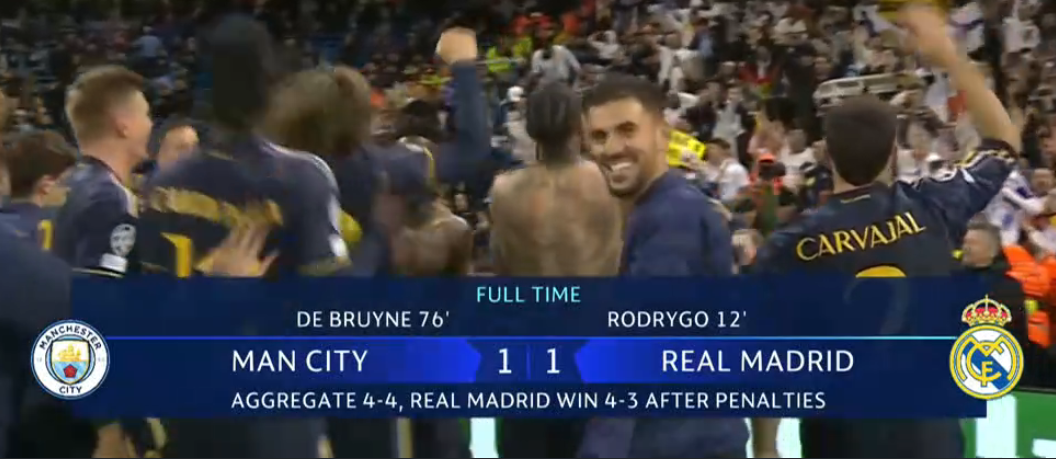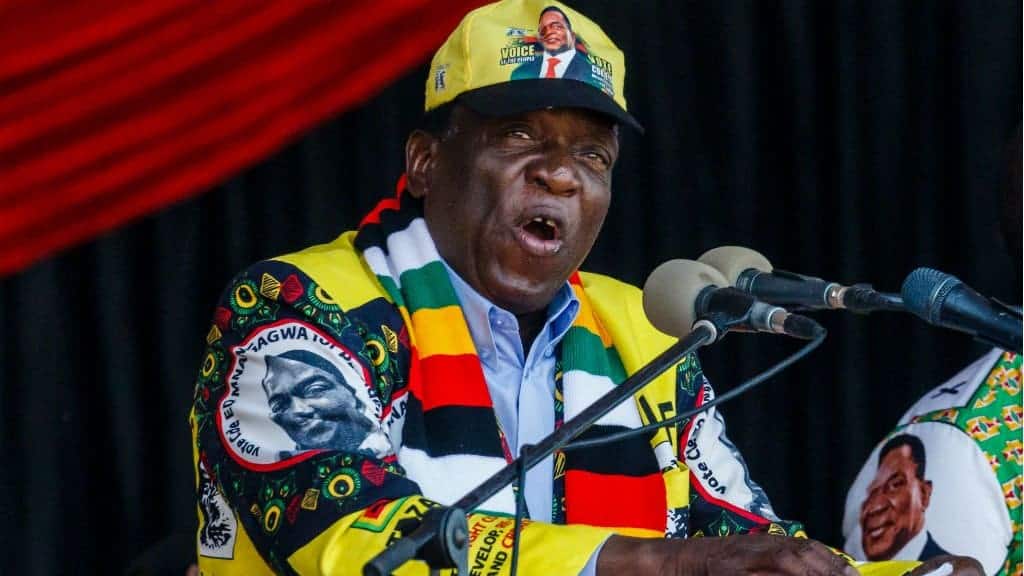Citizens Coalition for Change CCC vice president and former Minister of Finance and Economic Development, Tendai Biti has given the incumbent minister tips on how to balance his income and expenditure.
Giving his contribution on the Supplementary budget in Parliament, Biti emphasized that Mthuli Ncube did not present a supplementary budget, instead a new one altogether.
He began his contribution:
Thank you Madam Speaker Ma’am. It is my privilege to join the debate on the Supplementary Budget that was brought in by the Minister of Finance on 27th July, 2022.
Madam Speaker, even though you are calling it supplementary budget, it cannot be a supplementary budget. It is in fact a brand new budget.
A supplementary budget is an increase, 10%; 15%, you can call it a supplementary budget but when you have a 100% increase on the original budget, it cannot be a supplementary budget. This is a brand new budget; a budget that is now raising expenditure by 100% to $1.9 trillion.
In a country such as Zimbabwe, because we have been there before, in 2006, 2007 and 2008, once you begin to budget in trillions, you must know you have lost it.
You must know that you have now become an innocent by-stander to the economy. You must know that you are no longer in charge of the economy. Unfortunately, that is the predicament that my good friend, the Minister of Finance finds himself in.
The Minister of Finance brought a budget in November, 2021. That budget was based on certain underlying assumptions that were made. Those underlying assumptions were the following:
Number one, that we will have a predictable exchange rate. Number two, that inflation will be stable. Number three, that we will have a decent rain season.
Number four, that there will be growth rate of at least 6%. The concern is that the underlying assumptions made by the Minister were so far off the mark that hardly more than six months later, he has had to come to this august House to ask for a 100% increase in his budget.
So we question the legitimacy and credibility of all the processes that we are doing. It is a waste of time that we are asked to sit here when the Minister is going to go and be off target by 100%.
This is the Minister who has cut his teeth on the mantra of surpluses. So what it means is that before six months is out, this budget is already out by 100%.
Bear in mind that we already have a Financial Adjustment Bill tabled in February, 2022 in respect of which the Minister is asking for condonation by this august House of over expenditure in 2019 and 2020 of $103 billion.
If you look at $103 billion for 2021 and for 2020, it actually means that he has been having a parallel budget that is more than the original budget.
The only thing that he has done in his favour this time around is, at least he has come to Parliament to ask for condonation.
Otherwise in the last years – 2018, 2019, 2020 and 2021, he has just been running parallel budgets and then seeking post condonation by Parliament through the Financial Adjustment Bill.
Our prayer now is that the Minister must respect Parliament. The Minister must respect the Blue Book; the Minister must respect the Appropriation Bill that we pass as Parliament and live within his means, so that Parliament is not put to the embarrassment that it becomes a rubber stamp of excessive Government expenditure engineered by the Minister of Finance.
I come to the second point I have Madam Speaker. What are the issues that are affecting our country at the present moment? I will submit that there are seven key issues that are affecting this economy.
The first one is hyperinflation. Inflation in Zimbabwe right now is the highest in the world. Even with the reduced inflation of July, our inflation is still above 500% with month on month inflation more than 60%. The definition of hyperinflation is when inflation exceeds 50% per month.
So we are back in a hyperinflationary mode but this is regrettable because less than 10 years ago, we had the second highest inflation in the history of mankind at 500 billion percent, only less than Hungary in 1956. That is problem number one.
Problem number two; we have got the challenge of collapsed exchange rate. The parallel market rate is over 1: 800. A few days ago it was 1:1200. The third problem we have is disposable income. Public servants are being paid paltry incomes which are not reflective of the reality out there.
The poverty datum line to survive in Zimbabwe, for a family of six you need at least US$800 per month, yet all of us including Members of Parliament, we are earning less than US$100 per month.
Most of us are earning 60 000 RTGs; 60 000 RTGs cannot buy you four loaves of bread; it cannot buy you four bottles of cooking fat. It cannot buy you four bottles of mazowe.
About 79% of our people are wallowing in poverty, surviving on less than US$1.20.
The fourth thing is the collapse of the public service system. Hospitals are closed, there are no drugs, there are no syringe machines, our people are dying of ordinary simple diseases. Teachers have not been going to work for literally two years.
Our next problem is the issue of public debt, the issue of arbitrage and that of corruption. We are losing revenue of at least US1 billion a year in gold that is being smuggled out of Zimbabwe.
We are losing US$1 billion a year in respect of cigarettes that are being smuggled out of Zimbabwe. We are now an economy run by speculators.
We are now an economy run by cartels; a few individuals that are controlling this economy and that are forcing this economy to overheat.
These are the issues that we expected the Minister to address in his budget. Regrettably, he does not address these issues, the issue of the exchange rate needed to be fixed and sorted out as a matter of urgency.
How do you sort the exchange rate – you sort the exchange rate by allowing the multiple currency regime to operate, which he has done but secondly, you allow the Zimbabwean dollar to float.
Remove the controls on the Zimbabwean dollar and let the market find a normal stability point in the market.
I was in Kenya a few days ago, they have floated the Kenyan shilling. The average exchange rate is 1: 6000. Everyone knows that the Kenyan shilling trades at 1: 6000. If you go into a Kenyan bank, they will ask you – do you want Ugandan shillings, Kenyan shillings, Tanzanian shilling, Euros or bond?
The Minister must float the Zimbabwean dollar so that there is currency stability in this country. When you do that, when there is predictability and certainty, then you can budget.
The 2022 Budget was predicated on inflation of 35% but inflation right now is 600% yet the Minister knew this. It was foreseeable because the black market was there but we also know that the biggest generator of inflation in Zimbabwe is actually the Government itself.
It is the Government that has been paying billions and trillions of dollars to contractors, particularly the contractors that are doing the Beitbridge – Harare Road.
Those contractors are being paid in Zimbabwean dollars and once they get their payments in Zimbabwean dollars, they push it on to Fourth Street. When they put it on to Fourth Street, the Zimbabwean dollar collapses.
So an expansionary fiscal policy; an ambitious fiscal policy has created money in Zimbabwe. On his own admission, broad money grew by 345% by May, 2022. That means the printing machines are in overdrive Madam Speaker Ma’am, you create a crisis of over accumulation.
What is a crisis of over accumulation? A crisis of over accumulation is when you have got too much paper money chasing too few goods.
We go back to 2008, where all of us were trillionaires. The last time the Reserve Bank Governor printed our own currency, it was a $100.000 trillion, which could not buy you two bottles of soda. We now have our highest denominated note being a $100 note which cannot buy you a loaf of bread.
That is failure Madam Speaker Ma’am. It cannot buy you chewing gum and that is failure. The Government must stop printing money through an expansionary fiscal policy.
The Government must live within its means and eat what it kills. It cannot kill a rat and spend money like it has killed an elephant. That is the basis of the instability arresting this economy.
Madam Speaker Ma’am, I come to the projection. The Minister estimates that this economy will grow by 4.2%. He says that this is a reduction from the 7.3% growth rate of 2021. We know that the growth rate in 2021 was predicated by a strong agricultural season.
Agriculture contributed 36% to the growth rate of 2021, which was 7.3%. In his own Budget Statement, he asserts that agriculture is going to shrink by -5%.
So, if your anchor or mainstay of the economy has shrunk by -5%, where are you going to get the growth rate of 4.3%. In our submission Madam Speaker Ma’am, the growth rate of 4.3% is not realistic. It is not supported by any visible growth in the economy other than mining and must be reduced further.
One of the reasons why the Minister must reduce the growth rate further is that he has surrendered his authority and wisdom to the Reserve Bank, to number 80 Samora Machel Avenue, to John Panonetsa Mangudya.
Unfortunately for the Minister, Mangudya is going to lead him into total darkness. This is what John Mangudya has done. He has raised the rate of interest to 200%.
Madam Speaker, if you have a country such as Zimbabwe, which is prone to depressions because there is no output – I want to go back to the figures of 2020.
Our economy grew by -11.7% in 2020. This is confirmed in the IMF’s Article IV Report of April, 2020. The Minister himself in his letter that was leaked that he wrote to the IMF in April, 2020 actually estimated himself that the growth rate of 2020 will be -20%. We know that it was -11.7% in 2020 and 7.3% in 2021.
If you look from 2014 to 2021, the economy has been on a downward spiral. In fact, if you trace the history of our economy from 1960 to now, the economy has been in permanent recession mode. If you raise rates of interest, you are discouraging economic activity in the market.
You are preventing companies from borrowing because companies depend on working capital from the banking sector.
You are preventing financial intermediation and high rates of interest also do not make sense because we have got an in duplum rule, which says that when interest capitalises and reaches 1%, it stops accumulating.
A rate of 200% does not make sense both economically and legally. Madam Speaker Ma’am, what high rate of interest does is that it starves the economy of oxygen and it causes the economy to go into recession or depression mode. This is exactly what is happening right now. There is a collapse in aggregate demand, economic activity and in buoyancy.
You heard Hon. Members of Parliament saying they are being chased away from hotels, they have no money so the economy is shrinking.
It is strange Madam Speaker that in an economy which should be allowed to breath by the injection of money, the Government and its Central Bank is doing everything to squeeze the little economy that is there.
I want to say to my learned friend because he is very educated, much more educated than me that in a country such as Zimbabwe where less than 15% of the population is banked and where those that are banked are very minimum, there is over ZWL10 billion in the banking system owned by less than 12 companies such as Delta, Econet, Sakunda, Tagwirei, their cousins and so forth. 12 companies own the bulk of the money.
Where the country is under banked, your source of intervention cannot be monetary policy because Monetary Policy does not touch anyone.
We do not have money in Dotito, Chiendambuya, Tsholotsho and Nkayi, so the interventions that make sense must be supply side interventions not monetary interventions.
He has listened to John Mangudya, he is starving the economy of oxygen and he is making sure that the economy is now permanently stuck in default mode and depression mode.
I want to come to another thing Madam Speaker Ma’am which is the debt question. Zimbabwe is struggling with a debt overhang. Our debt overhang, the Minister puts the figures at US$14 billion. We beg to differ.
We think that a sovereign debt of Zimbabwe is over US$30 billion. We think that the Minister is under estimating and under stating the debt we owe to the African Import and Export Bank, the Republic of China and various private loans that we know the Government has contracted.
The problem with the debt question is that we do not see any plan by the Minister, yet the debt question is putting a premium on our development.
There are huge amounts of money that are at the African Development Bank.
President Adesina who was in this country has got over $40 billion on his high fives, agriculture, roads, water for poor countries such as Zimbabwe.
The World Bank has got over $75 billion for poor countries such as Zimbabwe.
We cannot access those monies because we have arrears which we need to clear – [HON. MEMBERS: Sanctions.] – It is not sanctions. We have got US$2 billion that we owe to the World Bank –
[HON. MEMBERS: Inaudible interjections.] – We have got US$500 million that we owe to the African Development Bank. We have got US$5 billion … [HON. MEMBERS: Inaudible interjections] – Hauna pekurara ipapa.
THE HON. DEPUTY SPEAKER: Order, order please! Order Hon. Members!
HON. BITI: Madam Speaker, we owe US$5 billion to the Paris Club of Lenders. Our point to the Minister of Finance is that please come up with a debt plan. At least Chinamasa had his Lima Plan, which may have failed …
THE HON. DEPUTY SPEAKER: Hon. Biti, you are left with five minutes.
HON. BITI: In conclusion, I urge the Minister of Finance to do the following things:
i. To have a credible macro-economic framework,
ii. To come up with a solution to sort out the exchange rate. In my opinion, please float the Zimbabwean dollar.
iii. Live within your means.
Pursue fiscal prudence, pay civil servants including teachers and Members of Parliament in United States dollars, please fund agriculture adequately, please fund the social services adequately and deal with corruption and cartels.
I thank you Madam Speaker.
Zwnews

